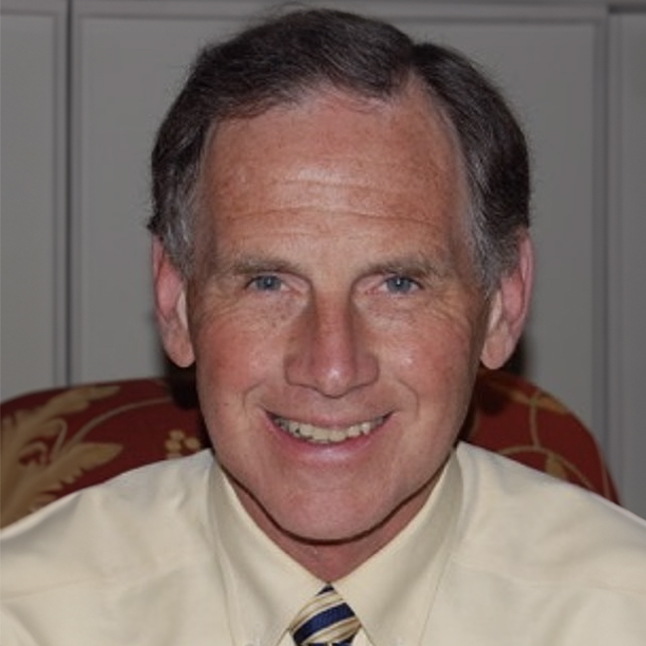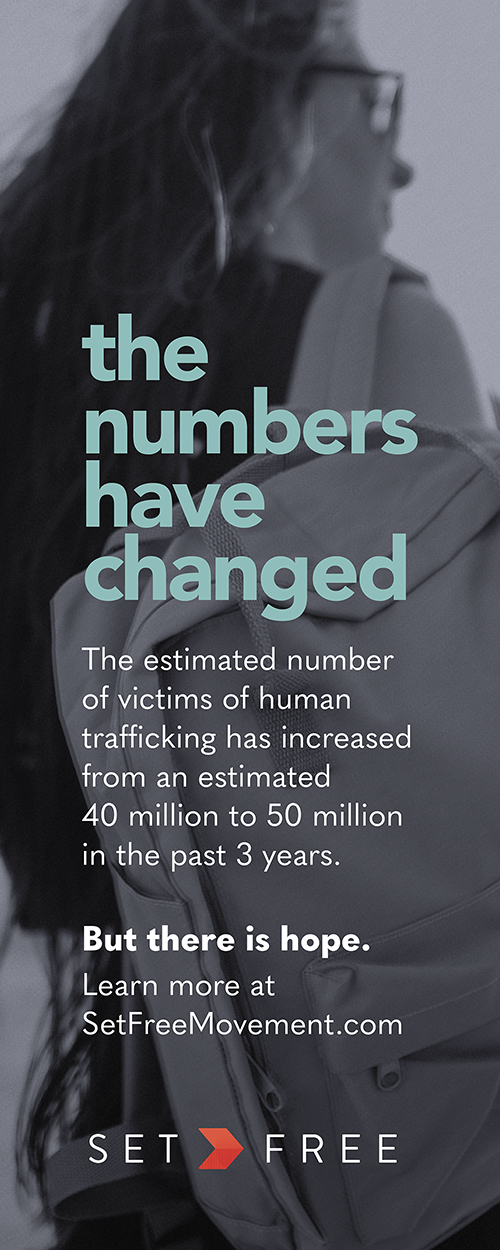
Charles Edward White
Charles Edward “Chuck” White, Ph.D., teaches at Spring Arbor University. He has taught the Bible in 15 countries. He has 16 grandchildren with one more on the way, and he has run 67,000 miles since he turned 40.
By Charles Edward White
Mission:
Igniting a Spirit-fueled movement that catalyzes the multiplication of leaders and churches
Mission Measures (when we are successful at the mission):
- Spirit Aliveness
- Evangelistic Disciple-Making System
- Mentoring Pipeline
- Multiplication Step
(Source: Free Methodist Vision Frame)
Five hundred and six years ago this October, God used Martin Luther to spark the Protestant Reformation. Luther used the Bible to demand improvements in the church. The church had kept the Scripture locked up and away from the common people. They kept it in Latin, a language only the powerful read, and they kept its teaching in the mouth of the clergy, who were living off the system. Luther translated the Bible into everyday language, the kind the fishmonger spoke in the street. Then he encouraged everyone to compare what the Bible said with what the clergy taught. The resulting Reformation shaped the modern world, helping to bring us everything from representative government to universal public education.
_
“No longer was the church the only one on earth who knew God’s will.”
_
Besides providing a Bible everyone could read, Luther also promoted the Bible’s teaching of the priesthood of every believer. No longer was the church the only one on earth who knew God’s will. No longer did the church dispense God’s grace through the mumbo-jumbo of Latin sacraments. No, the Scripture was clear in what it said, and anyone could come to God through faith in Jesus Christ. No longer did people need to talk to a priest to get their sins forgiven. Gone was the middleman as all could boldly approach the throne of grace.
We in the Protestant churches, who claim to be shaped by the Reformation, preach both its halves: the open Bible and the priesthood of the believers. But our practices soon contradicted our beliefs. Yes, the Bible was open, and anyone could understand it, but to make sure everyone rightly divided the word of truth (2 Timothy 2:15), we said everyone needed to come to church on Sunday where they all could hear it preached. The pulpit pushed the Communion table from the center of the church — showing the words of the preacher were more important than the sacraments of the priest. But the preacher was still in the center. The Catholic Church said that Sunday was a holy day of obligation, because everyone needed to come to church to share in the Mass. We (Protestants) never said it would save you, but still you needed to be in church on Sunday to hear the preaching of the Word of God.
COVID-19 changed all that. As churches went online, people got the idea that listening to preaching over one’s phone counted the same as showing up in person. Numbers dropped in churches all around the country and haven’t come back in many local churches even though it’s now legal and safe to gather again. If the main point of Sunday morning is listening to good preaching, why not stay in my pajamas and listen to Rick Warren? If listening to Bible preaching once a week is the sole duty of a human, why not do it on my schedule? And so people stayed home in droves.
We (pastors) had invested years in learning grammatical-historical exegesis and homiletics, and we were broken-hearted as we looked at the newly emptied seats. “Preach the word … in season and out” we heard Paul admonish Timothy (2 Timothy 4:2), so we girded up our loins and persevered. “God is the one who sends revival,” we remembered. “It’s not my job to be successful, but to be faithful.”
But maybe God allowed COVID to get us to be faithful. Maybe God used COVID to wake us up to a fact that has been true for at least a hundred years. Amos could speak of “a famine of hearing the words of the Lord” (8:11), and John Milton could complain, “The hungry sheep look up, and are not fed” (“Lycidas,” published in 1638), but, since 1920, God’s Word has been in our hands and on the air all over this country.
_
“COVID made it clear that God doesn’t need people to gather in rows once a week to hear from Him.”
_
Now God’s Word is accessible as never before. Every computer can download a hundred translations, and every phone can be a pulpit for a thousand preachers. Good preaching used to be scarce. Churches could pack the pews for a week of special meetings, and tens of thousands would fill stadiums to hear Billy Graham. But nobody does that anymore.
COVID made it clear that God doesn’t need people to gather in rows once a week to hear from Him. They can hear His voice just fine over coffee in the kitchens or jogging in the park. So why are we trying so hard to get them to come back for one hour in our buildings?
Evangelism, Therapy, Service
The American Bible Society released its annual “State of the Bible” report recently. (Click here to download it for free as an ebook.) According to the report, fewer people are going to church, but more people are open to God’s Word. From the podcast introducing the report, it seems that the main needs of people in America are 1) evangelism: because they do not have a relationship with Christ; 2) therapy: because most of them have been wounded by a traumatic experience; and 3) service: because the normal helps of family and friends have broken down.
_
“If preaching were teaching, listening would be learning.”
_
If what the Bible Society found is true, it seems that God is calling us “to equip the saints for the work of ministry” (Ephesians 4:12 NRSV). We need to focus on evangelism, therapy, and service. Of course we think we are doing this by preaching the Word, but if preaching were teaching, listening would be learning. Who would ever teach swimming by lecturing? Yes, there are still some lecture theaters in medical schools, but at Harvard Medical School, students see patients beginning their first day. “Watch one, do one, teach one” is the way doctors learn surgical procedures. If we (pastors) really want to equip our saints to evangelize, to counsel, and to serve, we are going to have to stop lecturing and start mentoring (yes, a mentoring pipeline). Instead of standing 6 feet above contradiction, telling the saints the great truths of God’s Word, we are going to have to seat our people around tables and help them discover the great truths of God’s Word for themselves out of their own Bibles.
We are going to have to equip them to listen to the Holy Spirit (Spirit aliveness) as they evangelize, counsel, and serve the hurting people at their jobs, schools, teams, and families (evangelistic disciple-making systems).
Then we will need to bring our serving saints back each week to celebrate God’s successes and mourn their failures. We will help them learn from each other as every part of the body works to build up the whole structure. We will obey God’s Word when it says, “When you come together, each of you has a hymn, or a word of instruction, a revelation, a tongue or an interpretation. Everything must be done so that the church may be built up” (1 Corinthians 14:26).
And if we did things God’s way and really believed that all the gifts are essential, we wouldn’t have the stadium syndrome where thousands desperately in need of exercise watch 22 desperately in need of rest. All of us would know our gifts, and all would have their ministries. We could provide the substance-abuser the team of 10 so she would have someone to call 24 hours a day. We could give every school child a mentor when the parents failed. We could match new believers with a personal discipler to love them into maturity.
Our pastor once invited someone to preach when he was away. The first thing the visiting preacher said was that the church could never expect a revival unless it had another minister. When the gasps had subsided, he went on to explain that he was not advocating the replacement of the current pastor, but the addition of 300 additional ministers. The church had about a thousand members, and it generally took one person to disciple three others. Only when everyone had a discipler would that church see a revival.
A Methodist Multiplier
The idea of a church centered on the laity instead of one centered on the pastor is not new. About 160 years ago, Phoebe Palmer — a Methodist woman from New York — reported that the northern branch of the Methodist Church with more than 800,000 members had only grown by 896 in 1856. (They clearly were not taking the multiplication step.) She then wrote a series of articles in a Methodist newspaper challenging Methodist ministers to mobilize their congregations to be “soul winners.” Each Methodist must be trained in personal evangelism. If they did this, she challenged, “Shall we have the greatest revival … ever witnessed during the coming year?” So convinced was Palmer that she had the articles published as a pamphlet, which she sent to more than 3,000 Methodist ministers.
_
“Let’s finish the Reformation by doing our jobs as pastors and lay leaders.”
_
As if in answer to Phoebe Palmer’s challenge, during the fall of 1857, 2,000 people were saved as a result of the training she offered in lay ministry. When she reported her results in a letter published in a New York newspaper, hundreds of pastors began to copy her biblical methods of equipping lay evangelists. Called “The Prayer Revival” it spread across the country and influenced all the Protestant denominations. The Methodists multiplied with an increase of 136,036 members, and other churches reported almost 900,000 new believers. Mrs. Palmer and others took the revival to Britain where a reported million and a half were saved. Newspapers called the time between the fall of 1857 and the fall of 1858 an annus mirabilis, a year of miracles.
Maybe God used COVID to show us that our pastor-centric, sermon-dominated church meetings won’t work anymore, if they ever did. Jesus told us to make disciples, but we heard him say “hold services.” Martin Luther was right to unchain the Word of God. Let’s finish the Reformation by doing our jobs as pastors and lay leaders — equipping all the saints to do the work of the ministry.
+

Charles Edward White
Charles Edward “Chuck” White, Ph.D., teaches at Spring Arbor University. He has taught the Bible in 15 countries. He has 16 grandchildren with one more on the way, and he has run 67,000 miles since he turned 40.









